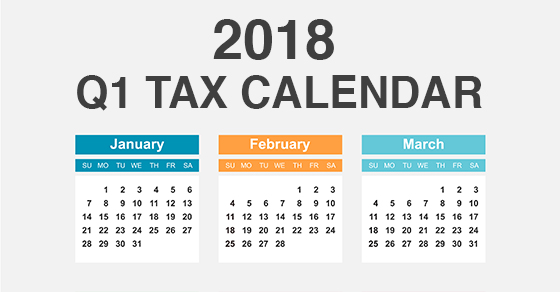Tax Cuts and Jobs Act: Key Provisions Affecting Businesses
The recently passed tax reform bill, commonly referred to as the “Tax Cuts and Jobs Act” (TCJA), is the most expansive federal tax legislation since 1986. It includes a multitude of provisions that will have a major impact on businesses.

Here’s a look at some of the most significant changes. They generally apply to tax years beginning after December 31, 2017, except where noted.
- Replacement of graduated corporate tax rates ranging from 15% to 35% with a flat corporate rate of 21%
- Repeal of the 20% corporate alternative minimum tax (AMT)
- New 20% qualified business income deduction for owners of flow-through entities (such as partnerships, limited liability companies and S corporations) and sole proprietorships — through 2025
- Doubling of bonus depreciation to 100% and expansion of qualified assets to include used assets — effective for assets acquired and placed in service after September 27, 2017, and before January 1, 2023
- Doubling of the Section 179 expensing limit to $1 million and an increase of the expensing phaseout threshold to $2.5 million
- Other enhancements to depreciation-related deductions
- New disallowance of deductions for net interest expense in excess of 30% of the business’s adjusted taxable income (exceptions apply)
- New limits on net operating loss (NOL) deductions
- Elimination of the Section 199 deduction, also commonly referred to as the domestic production activities deduction or manufacturers’ deduction — effective for tax years beginning after December 31, 2017, for noncorporate taxpayers and for tax years beginning after December 31, 2018, for C corporation taxpayers
- New rule limiting like-kind exchanges to real property that is not held primarily for sale
- New tax credit for employer-paid family and medical leave — through 2019
- New limitations on excessive employee compensation
- New limitations on deductions for employee fringe benefits, such as entertainment and, in certain circumstances, meals and transportation
Keep in mind that additional rules and limits apply to what we’ve covered here, and there are other TCJA provisions that may affect your business. Contact us for more details and to discuss what your business needs to do in light of these changes.

















 Ladoska Keeter is leading an effort to bring needed supplies to hurricane victims in Eastern North Carolina, especially in the Robeson County area which has been tremendously devastated. Ladoska will be loading her trailer and personally taking these supplies to the affected area. We are inviting, friends and clients to drop donations off at our office in the next week or so to support this effort.
Ladoska Keeter is leading an effort to bring needed supplies to hurricane victims in Eastern North Carolina, especially in the Robeson County area which has been tremendously devastated. Ladoska will be loading her trailer and personally taking these supplies to the affected area. We are inviting, friends and clients to drop donations off at our office in the next week or so to support this effort. Keeping your finances in order isn’t always the easiest thing to do, even if you’re not a business owner. But when you tack on the extra responsibility that comes with accounting for the assets of your own company, the process of maintaining good standing finances gets a bit trickier.
Keeping your finances in order isn’t always the easiest thing to do, even if you’re not a business owner. But when you tack on the extra responsibility that comes with accounting for the assets of your own company, the process of maintaining good standing finances gets a bit trickier.








